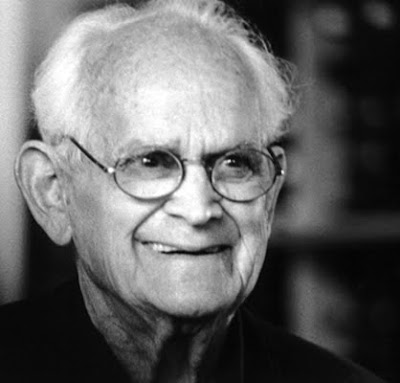 James Agee
James Agee.
Though I would greatly enjoy having a first-rate vocabulary, I’m afraid my hope will have to join a long list of deferred personal desires, each entry standing around inside my imagination like teenagers without appointments at the Department of Motor Vehicles office. It's a list which includes: wanting to be Johnny Depp handsome; disposable income; a girlfriend who could be mistaken for Virginia Woolf; tactile proof of God’s existence; a 1958 bathtub Porsche with a dependable engine; a PhD in film appreciation; the cost of a new dental bridge; the Cubs winning a World Series; a Socialist government in my country; the re-opening of the Fox Venice movie theater on Lincoln Boulevard; a road trip across Africa; a small life insurance policy for my kids after I’m gone; free Sushi every Wednesday, and the list goes on. Why bring this up? Well, upon reading some old issues of Film Comment, I was struck by the vocabulary used by their film critics and reviewers—an amazing cornucopia of language that would drop many a philologist’s jaw. Immediately, I grew envious and bemoaned my own paltry language skills, especially admiring the grey matter data bases which could house and retrieve such a huge and varied collection of meaningful syllables. I began writing down each interesting word in a notebook, some whose definitions I knew, some which sent me to the dictionary. Pretty soon, I was including multiple words from each sentence. Why don’t I use these words? Am I lazy? Genetically impaired? A spelling bee underachiever? How I wish when I wrote down the phrase “lots of” I had actually used “proliferating magnitudes of associations therein.” Did I sleep through college or what?
Eventually the word list became too large, I’d never remember the entries. I then realized I also wouldn’t remember the gist of the article either. Like the swirling confection of rococo sculptural details in a Viennese church, all that marble froth was really just a cloud to hold up an angel. Why all the fuss? So, I began the Film Comment article once again, trying to paraphrase and dumb down the prose into digestible bites of meaning. Surprisingly, the ideas behind the formidable ammunition cache of words weren't very complex whatsoever. The critic was admiring a movie she found of interest, or perhaps the critic was admiring a movie she wished she'd seen, rather than the actual film itself. Maybe it was a movie the critic would have made, given the ingredients of the movie which had actually been released, had she been the director. Reality is a funny business, and apparently film critics are a curious and unusual bunch. I’m reminded of an interview with Manny Farber titled The Throbbing Acuity of Negative Space: an interview with America’s most original film critic, in which the interviewer, Kent Jones, reflected while formulating a question for Mr. Farber: “I read Agee [James Agee] quite carefully when I was young, and there was always something about his criticism that bothered me, no matter how gorgeous the prose. Simply put, he was forever writing about the film he wanted to see as opposed to the one he did see, and that unfortunate tradition in which the critic’s prose competes with the film in question begins with him.” Oddly, I might be more interested in where that tendency ends rather than with whom it began. I can visualize, however, a circumstance in which a well-written piece on a bad movie is worth more for the critical ideas which it percolates (by the impetus of writing) than any ideas which can be found in the movie in question. So, wordsmiths, rock on; but remember that at the end of the day, you’ll have to confront Guy Debord and his Situationist brethren demanding to know if you’ve merely continued the precepts of Spectacle, or effectively pointed new directions in which readers may counter the accepted and entrenched fetishism of images which confound rather than inform. That is, once film writers accept the responsibility to be more than cheerleaders for world film sales, prose takes on a fresh importance whose subject is no longer limited to the single movie at hand, but its relationship to a heady concoction of cinematic culture, one channeled and shaped by international business interests using the film-going public to sell commodities surely, but to order and control the public’s role in the non-virtual, non-imagistic enterprises of daily living. I can hear you now, and I sympathize, “fuck, I just want to watch George Clooney in an action flick, try to forget my day at the slaughterhouse; maybe grab a Corona later and see if that waitress with the Mondrian tattoo will be there.” And you will, my friend, you will.
Guess it's time to dig out Manny Farber, he was an amazingly crusty and original troublemaker.
 Manny Farber
Manny Farber.

"a girlfriend who could be mistaken for Virginia Woolf". Then stop settling for Sandy Dennis in her role as Honey, honey. Give up the broken-winged birds.
ReplyDelete